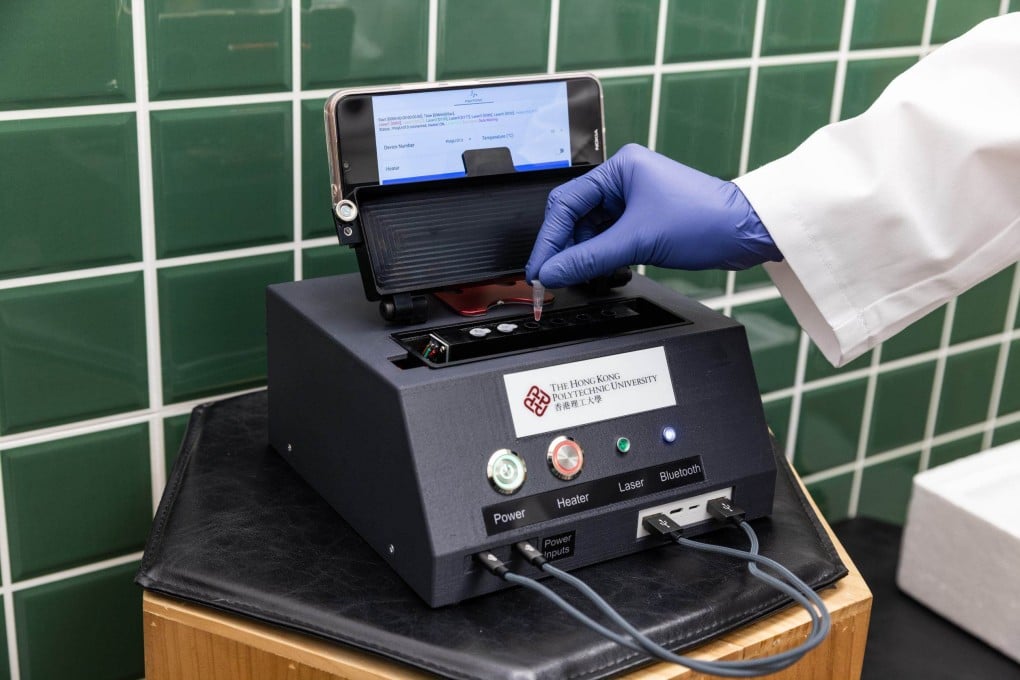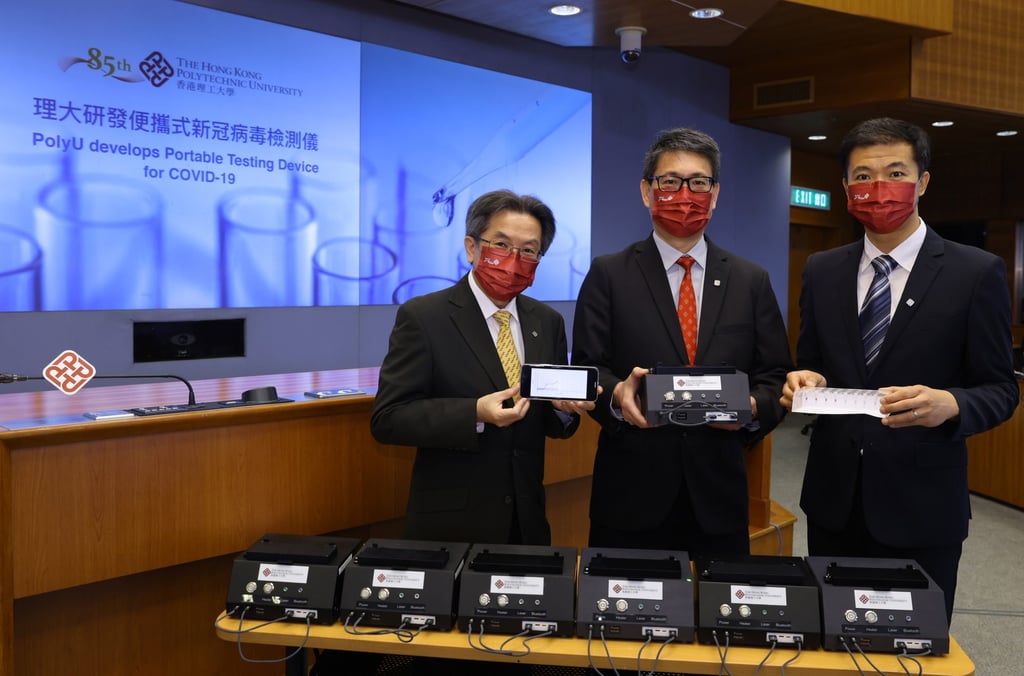Hong Kong researchers develop device that can detect coronavirus in people and the environment, results ready on the spot in 40 minutes
- The new method is said to be more accurate than rapid tests while faster than PCR examinations
- Results can be delivered on the spot without the need for a laboratory

University researchers in Hong Kong have developed a device that can test for the coronavirus in people and the environment, with results delivered on the spot in just 40 minutes.
The team from Polytechnic University said the new method – without the need for a laboratory – was more accurate than the rapid antigen test (RAT) while faster than polymerase chain reaction (PCR) screening. The latter, the official test adopted in the city, takes two to four hours to obtain a result at a laboratory. Hong Kong is currently using both PCR and RAT tests to detect Covid-19 among residents.
“The public remains vigilant against the virus and testing will become routine to protect health ... There is also more demand for detection methods that can quickly and accurately identify the virus,” said Professor Yip Shea-ping, the university’s head of the health technology and informatics department during an online press conference on Tuesday.
The researchers hope to collaborate with the government and other organisations for mass usage of the device in the future in places such as elderly homes, clinics, schools, isolation facilities and shopping malls.
The HK$2.7 million project is funded by the Health and Medical Research Fund from the Food and Health Bureau, which awarded the grant in 2020.

Yip said the newly developed system utilises RT-LAMP, a type of simplified nucleic acid test, and a technology involving gold nanoparticles as a reactant to detect the virus.